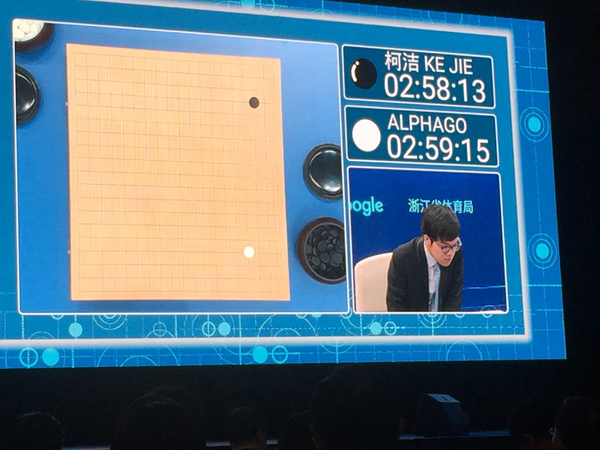Battle between China’s Go champion and computer begins
 |
|
Ke Jie is playing Go with AlphaGo. [Photo by Ma Si/chinadaily.com.cn] |
The final battle between man and machine has begun with the world’s top Go player taking on Google’s AlphaGo.
China’s Ke Jie, 19, has started the first game in a best of three contest against Google’s AlphaGo Tuesday in China, the birth place of the 3,000-year-old board game.
The showdown, in Wuzhen, Zhejiang province is the latest contest between elite human Go players and AlphaGo developed by Google’s DeepMind.
The program defeated South Korean Go master Lee Se-dol 4-1 in March 2016.
On the eve of the much-anticipated game, world-title holder Ke posted on his Weibo account: “No matter win or lose, this will be my final contest with AI”.
“I believe the future belongs to AI for it is leaping forward at a pace far beyond our imagination,” he said.
“But it is still a machine. I can’t feel its love and passion for Go. I will fight against it with all of my enthusiasm. I will never give up,” Ke said.
At the opening ceremony of the contest, Demis Hassabis, chief executive of Google DeepMind, said he hoped the match will help man and machine jointly explore the mysteries of Go together.
“Many Go players come up with new moves they have never thought of before after competing against AlphaGo. Whether man loses or wins, it is a victory for human beings,” he said.